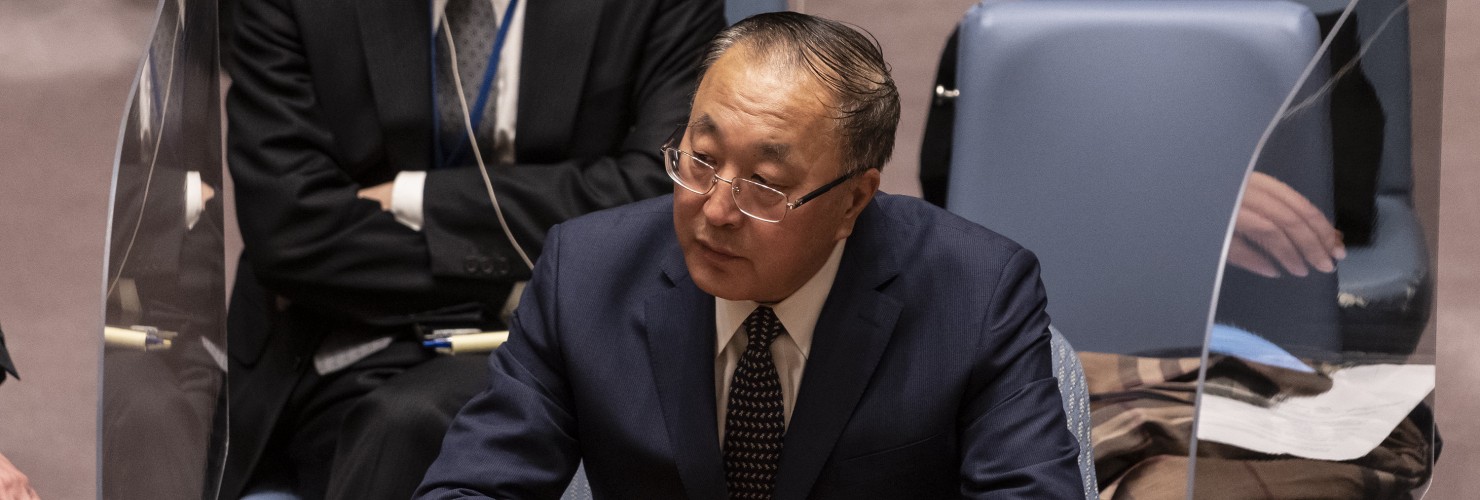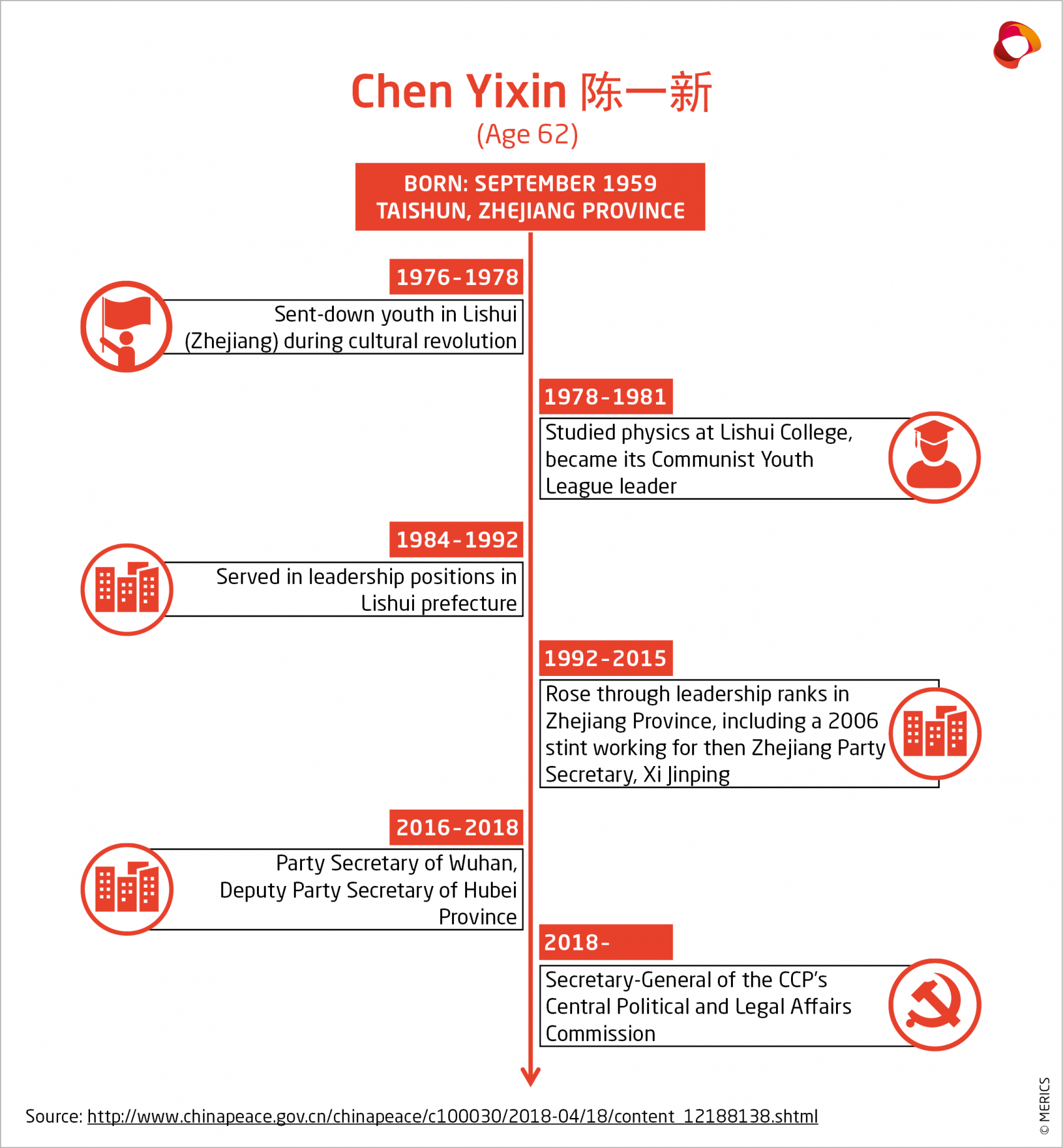

Ukraine + Tech sector job cuts + Common prosperity
TOP STORY
Moscow has forced Beijing into an unwelcome balancing act over Ukraine
The escalation of the Ukraine crisis has put China in a difficult position. Shortly after Chinese Foreign Minister Wang Yi at the Munich Security Conference called for the sovereignty and territorial integrity of all countries – including Ukraine – to be respected, President Vladimir Putin announced Russia’s recognition of the two separatist regions of Donetsk and Luhansk in Eastern Ukraine as independent states. This was swiftly followed by a full-scale invasion of Ukraine, launched in the early hours of February 24. China’s moves in the deepening crisis are under particular scrutiny after Xi Jinping and Putin at the beginning of February released a statement in which Beijing backed Moscow’s opposition to NATO enlargement and its other security concerns in Europe.
Even as the invasion was already underway, China has kept calling for restraint and a negotiated solution to prevent the situation from getting out of control. The Ministry of Foreign Affairs’ spokesperson Hua Chunying refused to acknowledge that this was an invasion, taking issue with Western reporters’ “preconceived wording”. The Chinese government is also increasingly blaming the United States for this crisis, accusing Washington of “hyping up tensions”. Despite this Russia-friendly rhetoric, the Ukraine crisis has few – if any – upsides for Beijing. Openly siding with Moscow in the event of an armed conflict would openly violate China’s longstanding principle of non-interference in other countries’ affairs, irreparably damage its relations with the West, accelerate the formation of competing geopolitical blocs, and force many countries around the world (including Ukraine and others in Eastern Europe) to firmly take sides. Abandoning Moscow, on the other hand, would put an end to China’s closest and most significant strategic partnership at a time of rising global tensions.
The Chinese leadership’s initial instinct in this crisis has been to follow the playbook it used when Russia annexed Crimea in 2014: staying out of the fray as much as possible and trying not to openly take sides. But geopolitical competition between China and the West is much more acute today than it was eight years ago, and this approach is no longer viable. China is likely to keep trying to square the circle by continued use of careful diplomatic messaging that avoids criticizing Moscow and includes nods towards Russia’s position (and probably behind-the-scenes help to mitigate the impact of Western sanctions), while trying not to further damage relations with the EU and the US. But this balancing act is becoming harder and harder to maintain as the situation escalates.
MERICS analysis: “Now that war has broken out, China is scrambling to maintain a difficult balance between an important relationship with Moscow and the necessity to keep relations with the West on track,” said Helena Legarda, Lead Analyst at MERICS. For the Chinese leadership, this is not just about the future of Ukraine. It plays into the larger question about China’s global ambitions and how it positions itself – now and in the long run – towards the West and Russia.”
Media coverage and sources:
- Reuters: China calls for restraint in Ukraine, rejects the term “invasion”
- NY Times: China’s foreign minister calls for new negotiations and respect for ‘territorial integrity.’
- Kremlin: Joint Statement of the Russian Federation and the People’s Republic of China
- MFA (CN): 王毅应约同美国国务卿布林肯通电话
- MFA (CN): 2022年2月23日外交部发言人华春莹主持例行记者会
METRIX
6.1%
True to tradition, China is expected to use the National People’s Congress at the start of March to announce an economic-growth target for 2022. Government advisors have reportedly suggested a range between 5 and 5.5 percent. MERICS has calculated a weighted average of the forecasts of the 31 provinces, municipalities, and autonomous regions. It suggests that China’s regions together expect gross domestic product (GDP) to grow 6.1 percent in 2022.
TOPICS
Wave of job cuts hits tech sector as impact of regulatory crackdown continues
The facts: One of China’s largest social media platforms, Weibo, has confirmed online rumors that it will cut jobs if it cannot re-deploy employees internally. The company is the latest industry player that is being forced to restructure and retrench staff as its business model comes under pressure from the central leadership’s regulatory crackdown on big tech. The wave of retrenchment started late last year and has hit firms such as Alibaba, Didi and TikTok-parent ByteDance. From record-breaking fines to rules banning online ads and restricting the use of algorithms, the government’s hard-nosed approach to reining in what it has called the “disorderly expansion of capital” has hit industry profits and stifled what was once a bastion of sought-after highly-skilled jobs.
What to watch: While some job losses are not new in China’s competitive tech sector, the current wave of redundancies appears to be larger and more prolonged than in the past. Employment opportunities in tech appear to be declining as a record 10.76 million college graduates hit a traditionally fiercely competitive job market. These young and educated Chinese citizens are also finding their prospects dimmed as a result of further economic slowdown. To counter this, the government has promised policy support as part of a broader drive to promote entrepreneurship and innovation. More measures could come next month when the National People Congress (NPC) holds its annual legislative sessions, beginning on March 4.
MERICS analysis: “China’s party state has shown it is not afraid of sacrificing certain sectors and companies to expand its political control,” says Valarie Tan, MERICS analyst. “We’re seeing the wider ramifications of Beijing’s continued regulatory tightening on the tech industry. Companies are in a period of uncertainty and painful adjustment, in terms of both people and profits. Tech is trying to adapt to the new rules set by the regime for China’s next stage of economic development.”
Media coverage and sources:
Common prosperity gets walked back… again
The facts: Xi Jinping’s drive for “common prosperity” keeps getting pared back in national messaging. On February 17, the National Development and Reform Commission (NDRC) held a press conference on the topic. Ha Zengyou, director of the employment department, emphasized that the push to achieve common prosperity should not go so far as to create “welfareism,” and officials should always observe China’s limited resources. He went on to say that “in the process of promoting common prosperity, we must adhere to what we do and do not do.” The priority was to provide better education, medical care, elderly care and housing, he added.
What to watch: The NDRC’s statements are consistent with the central government’s reminder in recent months that officials should not take common prosperity too far. This is meant to reassure vested interests that mass wealth redistribution is off the table. But, critically, it is also meant to ensure that opportunistic officials do not abuse the already burdened budgets of highly indebted local governments to advance a more radical version of common prosperity to gain political favor. We can expect more messaging like this throughout 2022, as stability is Beijing’s top priority leading up to the 20th Party Congress in November.
MERICS analysis: “This repeated messaging is largely driven by concerns that China’s officials often zealously implement whatever goals are prioritized by Xi Jinping, frequently leading to oversteps that create undesirable outcomes,” said MERICS Senior Analyst Jacob Gunter. “For example, when Xi called for blue skies over Beijing in 2017, fervent officials across the North China region destroyed coal heaters and replaced them with natural gas devices as winter approached. This left millions without heat as natural gas supplies and infrastructure proved insufficient.”
Media coverage and sources:
- NDRC: Press conference of the NDRC on the progress of supporting the high-quality development of Zhejiang Province in building a common prosperity demonstration zone
- SCMP: China warns its local governments don’t be overambitious in carrying out ‘common prosperity’ drive
- The Washington Post: Beijing wins battle for blue skies — but the poor are paying a price
REVIEW
The Oxford Handbook of China Innovation by Fu Xiaolan, Bruce McKern, and Jin Chen (Oxford University Press, 2021)
This handbook is ostensibly written for readers in countries that want to learn from China’s “great transformation” into a global innovation powerhouse. But it most often seems intended for an audience in Beijing, its main recommendation being that China remain open to the world. Foreign investment and international exchange are behind China’s success, the authors stress, and rising anti-globalism, led by the US, puts it at risk: “Responses and adjustments in China’s innovation policy and international diplomacy will be needed in China’s further pursuit of its innovation goals.”
This approach precludes criticism of China’s innovation policy. The handbook does not consider Beijing’s own path dependencies – the consequences of its past decisions – as a source of risk. Also absent is a credible response to concerns in Washington and Brussels over China’s growing techno-nationalism. All of this renders the authors’ calls for collaboration hollow – working together across borders and institutions can only be mutually beneficial if the surrounding framework is acceptable to all involved.
Across its 38 chapters, the book does critique some Chinese stances. Contrasting views about industrial policy come from Justin Yifu Lin and Zhang Weiying, who famously clashed on this issue in 2016. Zhang’s argument against industrial policy is supported by Loren Brandt and Eric Thun’s chapter, which contends that sectors with the least state inference are the most dynamic and innovative. Regulation can boost home advantages, they argue, but beyond this it is doubtful that government can effectively direct innovation. The authors also warn China’s focus on self-sufficiency will come at a cost.
But such critical observations are the exception. Overall, the handbook avoids direct challenges to the Chinese Communist Party line. Most of its contributors are affiliated with Chinese institutions: some, including Lin, Zhang and Xue Lan, dean of Tsinghua University’s Schwarzman College, are well-known policy advisors; lead author Fu Xiaolan, an Oxford University professor, was made a member of the Chinese Academy of Sciences weeks before publication. As a result, the book is more useful for opening a window on China’s liberal intellectuals than for shining a light on innovation there.
Reviewed by Jeroen Groenewegen-Lau, Senior Analyst at MERICS
PROFILE
Chen Yixin (陈一新) – ardent Xi supporter on the rise
In the coming issues, MERICS China Essentials will profile politicians likely to become more prominent as Xi Jinping tightens his control over the Chinese Communist Party (CCP). Xi is expected to secure a third term as General Secretary at November’s 20th Party Congress – and begin a reshuffle of the CCP’s leadership.
Chen Yixin is considered to be one of Xi’s strongest supporters among top cadres and is likely to be promoted to the CCP’s 25-seat Politburo at the Party Congress. Chen is said to be a member of the “Zhijiang New Army,” a group of dedicated officials who rubbed shoulders with Xi during his five-year stint as the province’s party leader in the early 2000s. Chen’s dedication is illustrated by his frequent writings for the CCP’s main theory journal, Qiushi, in which he elaborates on the virtues of a party-controlled legal regime.
Xi seems to have high trust in Chen, using him as a fixer during the initial Covid-19 response in Wuhan in 2020 and more recently to purge “corrupt elements” in security and law enforcement agencies. Chen plays a key part in the party’s feared legal-political oversight – screening officials’ loyalty and discipline – as general secretary, or deputy head, of the Central Political and Legal Affairs Commission. The powerful body’s leader, Guo Shengkun, is set to retire and vacate the post and a Politburo seat in November.
Tipped to succeed Guo, Chen looks set to become even more powerful in the party’s political security apparatus. Depending on Xi’s reshuffle at the very top of the CCP, there is also a chance he could take responsibility for domestic security, party discipline and anti-corruption in the Politburo’s seven-member Standing Committee. His relatively young age of 62 makes him eligible for one more five-year posting in 2027 – some observers even see Chen as a possible successor to Xi at that year’s 21st Party Congress.
Chen’s early career shows a swift ascent through the ranks of the CCP in his native Zhejiang province. He got his first party post while still a student and pursued a political career directly after finishing a degree in physics. After unusually fast promotions through various high-ranking positions beyond Zhejiang between 2015 and 2018, Chen’s move to the Central Political and Legal Affairs Commission confirmed his place as a powerful party insider, on track to rise to some of the highest party posts under Xi.
Media coverage and sources:
MERICS CHINA DIGEST
China appoints new special envoy for turbulent Horn of Africa region (Reuters)
Beijing has appointed Xue Bing, its former ambassador to Papua New Guinea, to the new post of special envoy for the Horn of Africa. The conflict-wracked region sits alongside one of the world's main shipping routes and is strategically important. China has invested a lot in the region and operates a naval base there. (22/02/22)
EU challenges China at the WTO to defend its high-tech sector (European Commission)
The European Union has filed a case against China at the World Trade Organization (WTO) for restricting EU companies from using foreign courts to protect patents. The EU accuses China of severely restricting EU companies from protecting rights to key technologies when patents are used without consent or proper compensation. Patent holders that seek redress before foreign courts are often fined in China. (22/02/18)
China will start pushing back the retirement age in the coming years, a response to falling birth rates, a rapidly ageing population and a shrinking workforce. The current mandatory retirement ages in China – 60 for men, 55 for female office workers and 50 for female blue-collar workers – have been in place for seven decades. (22/02/22)
According to new rules that came into force mid-February, cybersecurity reviews are now mandatory for internet platforms with over one million users that want to list their shares on overseas stock exchanges. According to experts, this will likely include Hong Kong, even though the city isn’t explicitly mentioned in the new law. (22/02/18)

